23 April 2020
Events20 May 2020
EventsEmerging from lockdown, we explore how emotional and mental wellbeing divides us as a nation; those searching for 'what once was', and those eager to maintain their 'renewed sense of wellbeing' post lockdown
Since late March, we have been conducting weekly surveys with thousands of New Zealanders, exploring different themes each week and understanding where we are at as a nation, and how our mindset is changing on the way we see ourselves and the world we live in…
Two weeks ago, at Alert Level 3
The growing wellbeing crisis and newly formed habits of Kiwis
Our three key findings were:
1. Our concern about COVID-19 has reduced alongside the alert level, but our concern is shifting from us as individuals, to our lives, our country and the world we live in, which is far more reaching than even our concerns for our jobs and future travel opportunities.
2. The COVID-19 crisis has negatively impacted every aspect of our perceived wellbeing, with our financial wellbeing taking a hit. NZ consumers will be feeling this pain going forward and will be cautious with spending, whilst trying to heal their overall wellbeing by connecting with people when they can and continuing on their path of physical wellbeing.
3. We are forming new habits and a new normal is potentially coming into focus – ones that may have implications for sustainability and our overall health. And underneath it all, NZers are hopeful for some of the positives of lockdown life to come through. Brands need to quickly find their valuable role in this new normal.
This week, at alert level 2
United in the importance of emotional and mental wellbeing, but divided in our aspirations for change
Our three key findings were:
1. While all aspects of our wellbeing have taken a hit, over 1/3 of Kiwi's prioritise emotional wellbeing because it's a foundation for everything else.
2. We are holding our breath for what the future holds — cautious, uncertain and a touch of hope. And we see that NZ's COVID-19 story is a tale of two experiences; two different stories of the same crisis with very different impacts.
3. But despite this tension, this experience has made us realise what is truly important and is likely to impact our how we choose to live going forward. Which is why when we think about our lessons and future behaviours, it's about resilience and hunkering down.
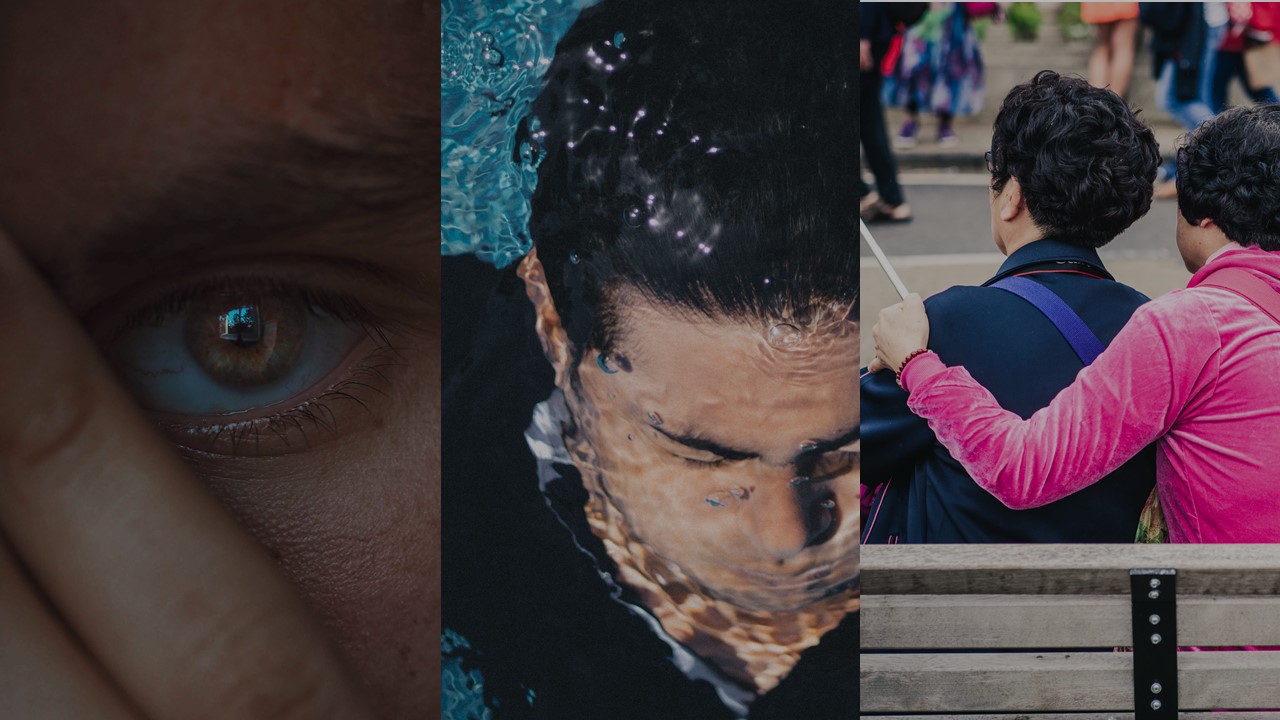
What did they tell us this week?
While all aspects of wellbeing have taken a hit, over 1/3 of Kiwi's prioritise emotional wellbeing because it's a foundation of everything else.
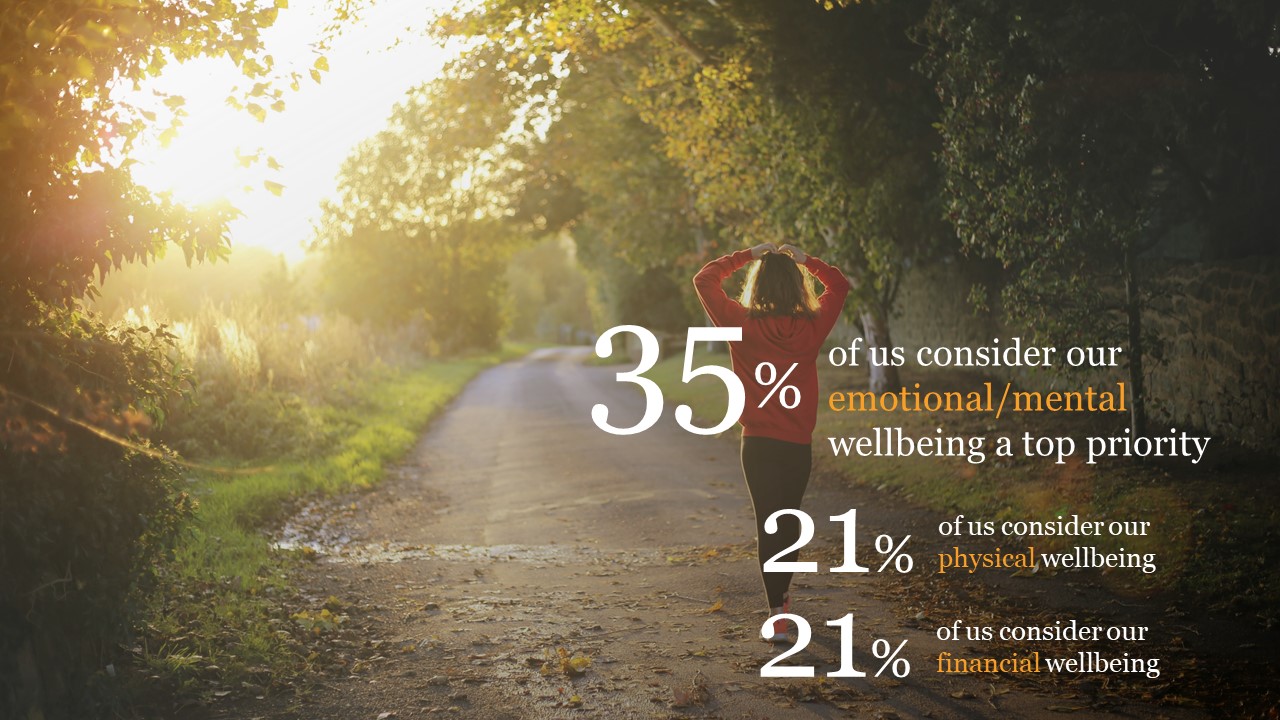
As we moved into Level 2, our priorities have shifted to focus on ourselves and while all wellbeing measures were impacted in prior weeks, we’re now most likely to prioritise our emotional/mental wellbeing. But these priorities see us split as a nation: those who want to regain their wellbeing and those who want to maintain their new sense of wellbeing — a tale of two opposing stories.
We see one story of those wanting to find the sense of wellbeing they had before; reconnecting with people to curb new-found loneliness, itching to get back into the gym to regain the physical wellbeing they once had and searching for financial and job security. Conversely, we see a desire to ensure the positive gains made during lockdown are maintained; taking time to look after ourselves and appreciating what really matters, and spending less/saving more. As we collectively embark on rebuilding the economy, many are on a journey to rebuild or refresh themselves; maintaining our gains but also regaining our losses.
Kiwi's are seeking to rebalance themselves; to fortify wellbeing for what the future holds, while living for today. Overall, we have become more aware that our emotional/mental wellbeing feeds into our sense of ability to manage all aspects of life and so have reflected on what is important. But we are divided as a nation as to the impact of our COVID-19 experiences: a case of glass half empty vs. half full. This is something we need to watch this as two different trajectories.
What we heard...
Mental/emotional wellbeing:
“I think living in Auckland and going through the daily motion of the rat race culture can make us forget what is really important in life. I want to slow down long enough to focus on my wellbeing as more than just something to ‘do’ on the to-do list.”
“Taking care of my emotional and mental well-being will help me take care of the rest.”
“The lockdown has shown how important mental wellbeing is for other areas of life. If this aspect is lacking, everything else is not going to be well either.”
Physical wellbeing:
“Staying active has been my new mantra. I have working out everyday during the lockdown and will try and stick to the routine with my yoga & pilates classes.”
“To have a healthy mind I need to be healthy physically. Health checks, flu shot and sensible planning when out in public.”
“Staying fit and healthy is important to me and my family. I plan on keeping our immune systems strong by adding a probiotic to our daily routine as well as plenty of fresh air by exercising outdoors.”
Financial wellbeing:
“Because it is uncertain times and although I am currently employed, there are no guarantees that there is no restructure/review in the pipelines. I will prioritize this by being more cautious with my money. Also if the LVR is removed, there may be a chance I will qualify for a home loan to buy my first home.”
“If finances are okay then that helps mental health by reducing stress. COVID has highlighted the importance of having an emergency fund and saving and reducing unnecessary debt.”
“My income is low too and I need to find some more paid work, but I am concerned about my ability to find suitable and well paid employment.”
We hold our breath for what the future holds - cautious, uncertain and a touch of hope
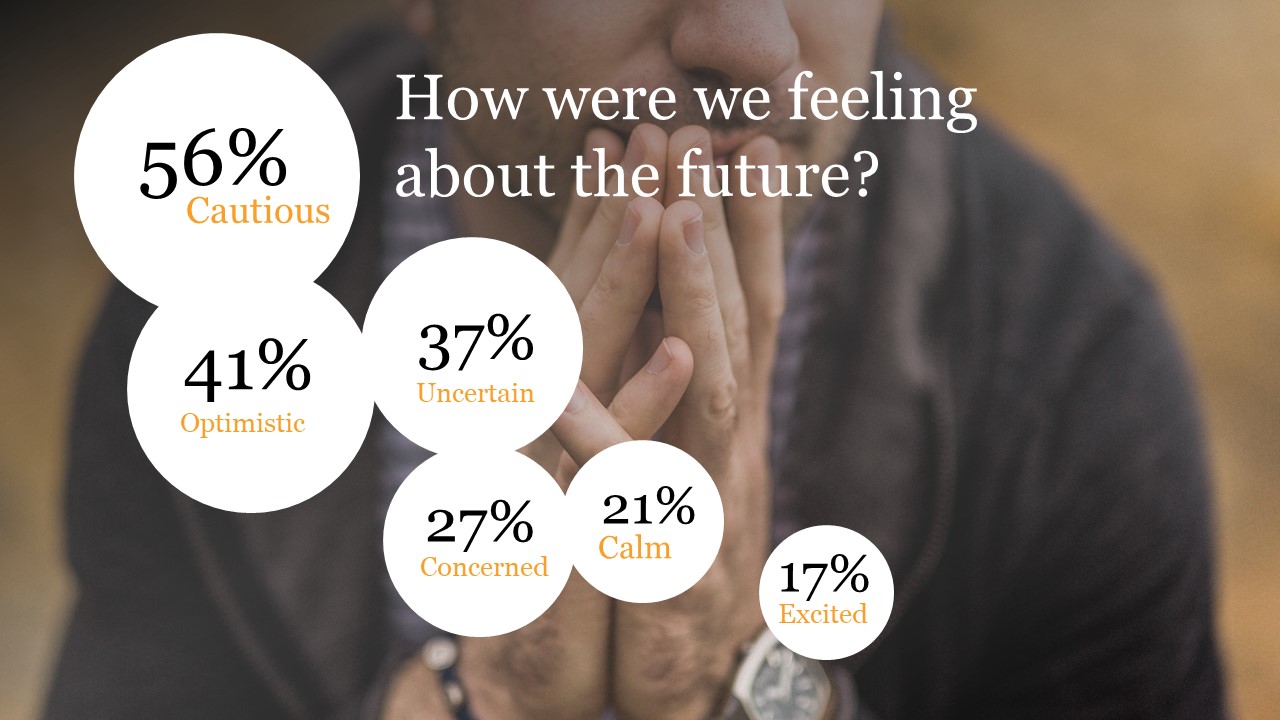
In choosing the top three words that reflect how they are feeling towards the future, NZers are telling a story of conflicting hopes and feelings:
- We feel cautious, uncertain and concerned
- But there are glimmers of optimism and hope
- And an element of excitement for what is to come and the freedoms we’re gaining back
- The binary nature we have is due to the fact that we don’t know what the future will hold for us. It feels like we are a nation holding our breath, waiting to see what happens; we’re uncertain and cautious but optimistic and calm.
Our little piece of paradise has been a relative safe-haven globally and this may be allowing us to look on the bright side regarding our futures, and that in the grand scheme of things we are all doing okay. But that is not enough to quell the underlying worry we have over what is to come: another health crisis, economic depression and job security concerns. We need to remain aware that consumers, although trying to be optimistic, are still cautious about what is to come. We may see this in their behaviour: a focus on essential purchases and travel, and supporting local to provide a sense of pride and justification of purchase when they have the ability and desire to spend over save.
A tale of two lockdown experiences – two stories of the same crisis with very different impacts
It's clear that lockdown has impacted us differently, creating very different outlooks on the future. We are divided in our experiences, but not in a divisive sense; just a tale of two stories during the same crisis. There has been both positive and negative aspects of this experience on our overall wellbeing: less spending but a loss of income or threat on job security; more time for exercise, but less of our normal exercise or gym routine; more time to ourselves to see things clearly and reassess what is important to our lives, but loneliness and stress. We are heading towards a time of re-balancing: regaining what was lost and maintaining what is new.
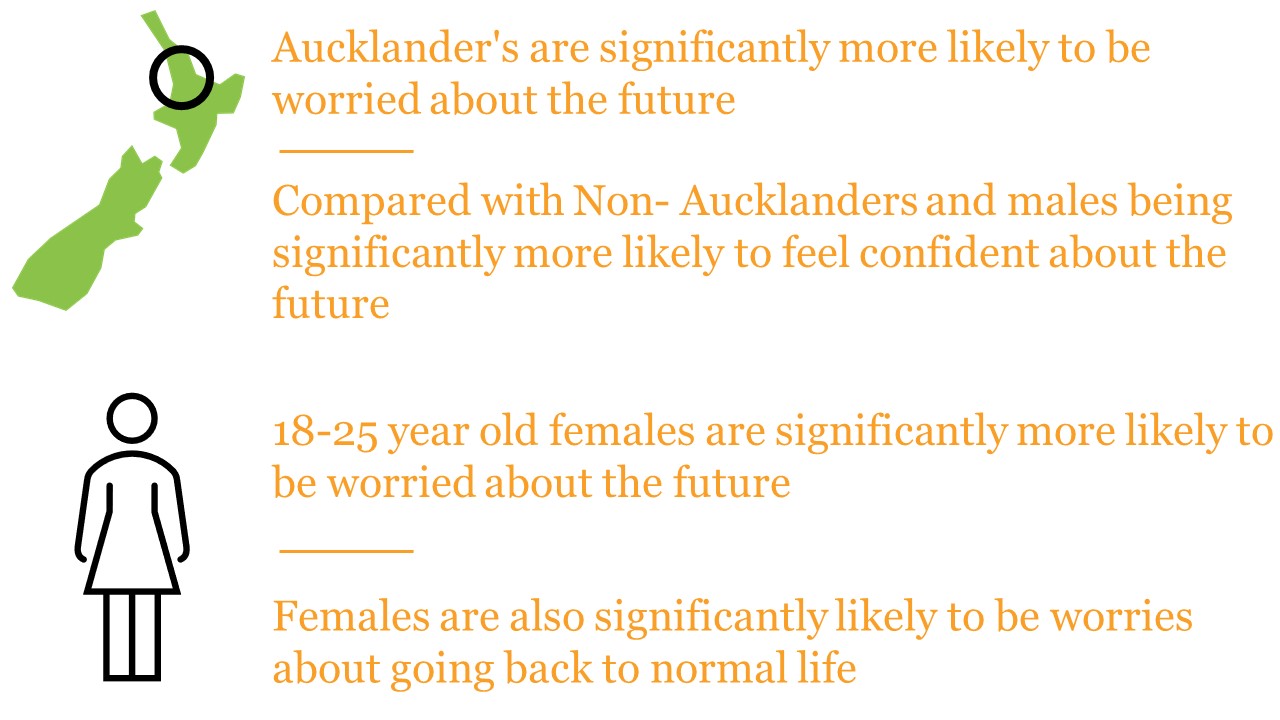
A few key demographics see some differences such as Aucklander’s being significantly more likely to be worried about the future, as are females and 18-25 year olds. Non-Aucklander’s and males are significantly more likely to feel confident about the future. Females are also significantly more likely to be worried about going about normal life.
Whether we had a positive or negative experience during the COVID-19 lockdown, it’s clear the impact will be profound. This has an impact on how we will consume going forward; whether we seek to go back to the routine tried and true or whether we aim to adopt a new approach to life. It is important to remember going forward that polar experiences have been had during the same situation; and to understand where our consumers or customers sit on this continuum.
…but this experience has made us realise what is truly important and is likely to impact how we choose to live going forward
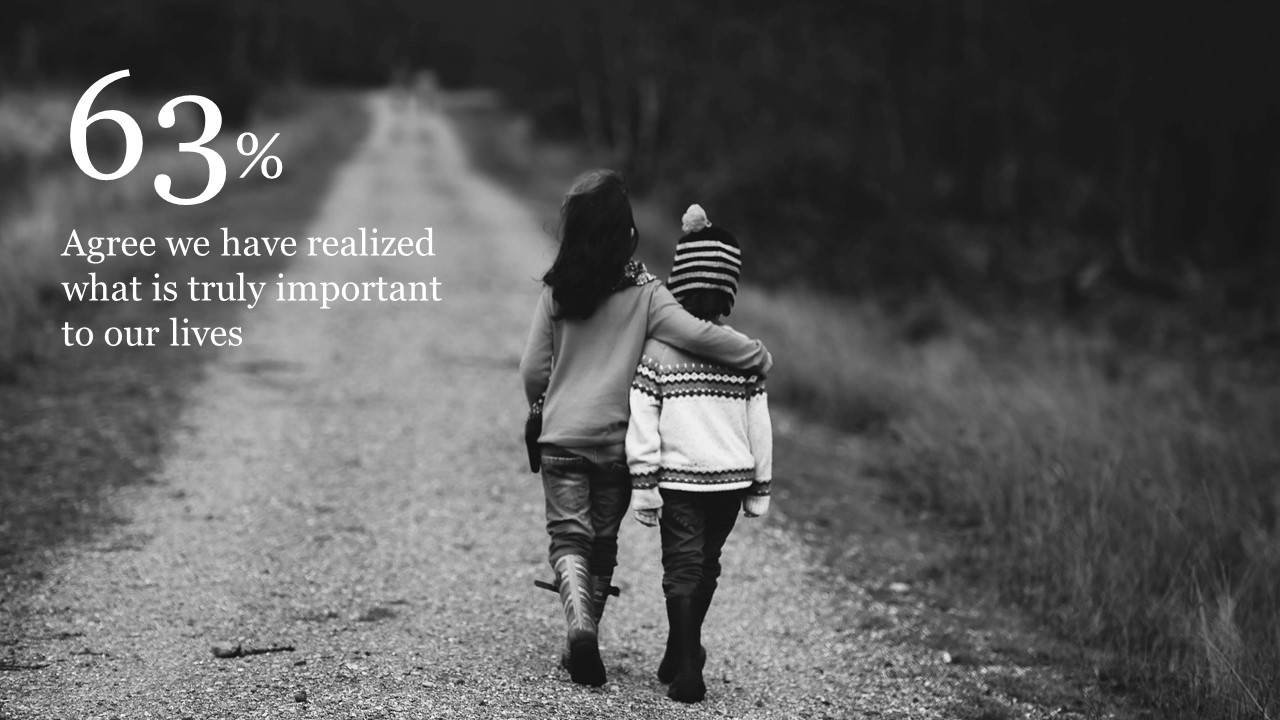
As we see a divided nation on many aspects of life, we still see agreeance on a few key things: that this has been a life changing experience. There is general agreeance that this experience has made us realise what is truly important to our lives; that it has been a wake up call to how we live going forward, and that this experience has actually made us feel more connected. There are a few demographic differences here though, with males and those 56+ being significantly more likely to feel disconnected from the world; with females and non-Aucklanders being significantly more likely to feel the world is a more connected place. We have had to learn to live differently: simpler and learn to communicate differently. This will impact us going forward – how we work, socialise, shop and leisure. This is a great time for local businesses; those focusing on quality and simplicity, and for those understanding the new NZ (and the good old NZ) – authentic Kiwi-ness.
Which is why when we think about our lessons and future behaviours, it is about resilience and hunkering down
- 75% agree that we shouldn't put off the things that might make me happy today
- 73% agree that it's the quality of my experiences, not the quantity of experiences that matter
- 57% agree to aspire to buy less but better in the future
We are focusing on simplifying life to what matters, building financial wellbeing, as well as things to build on our mental and physical wellbeing. We are developing an understanding about how this crisis has changed us; the life lessons we have learnt. This crisis has made us realise how quickly life can change; that we shouldn’t put off doing the things that make us happy and that it is about the quality of the experiences we have rather than the quantity. We have learnt that a more simple life is both doable and enjoyable and something to continue to strive for, alongside making sure we are prepared in future for events of this nature.
NZers will be in a state of cautious optimism going forward; preparing for future situations such as these whilst trying to live a little more simply, enjoying experiences and quality time over materialism. We need to be prepared that a new NZ consumer could be emerging – a consumer currently looking to rebuild their life as well as the NZ economy. NZers are in a cautious state, preparing and rebuilding, yet desire to support local businesses and if they do have the ability to spend – a tension exists between intentions to shop local and intentions to buy less and save more.
We’d love to hear your questions. Be part of the One Picture COVID Conversation.
Please email them to MareeL@onepicture.com. Questions are posted every Friday, with findings available EOB Wednesday. We look forward to you being part of it.
Like this article?
If you'd like to hear more, subscribe to our Frame or live chat to the team right here on this page.




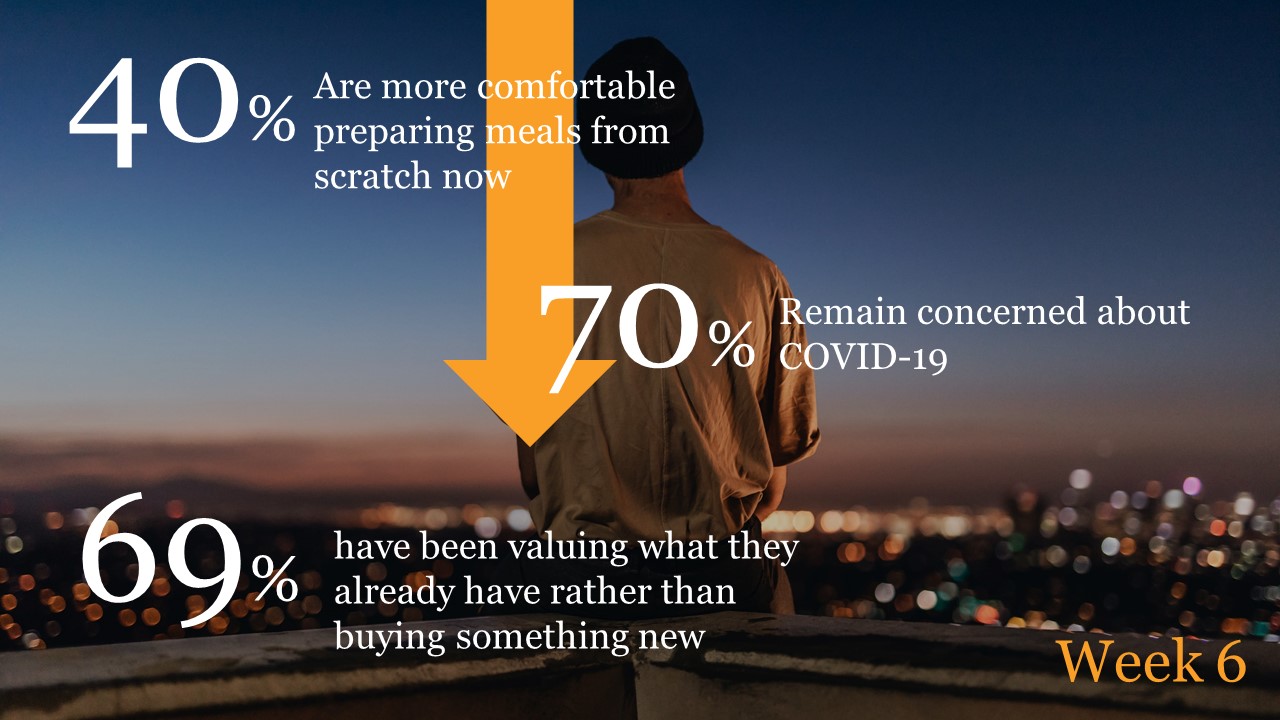
 Tags:
Tags: